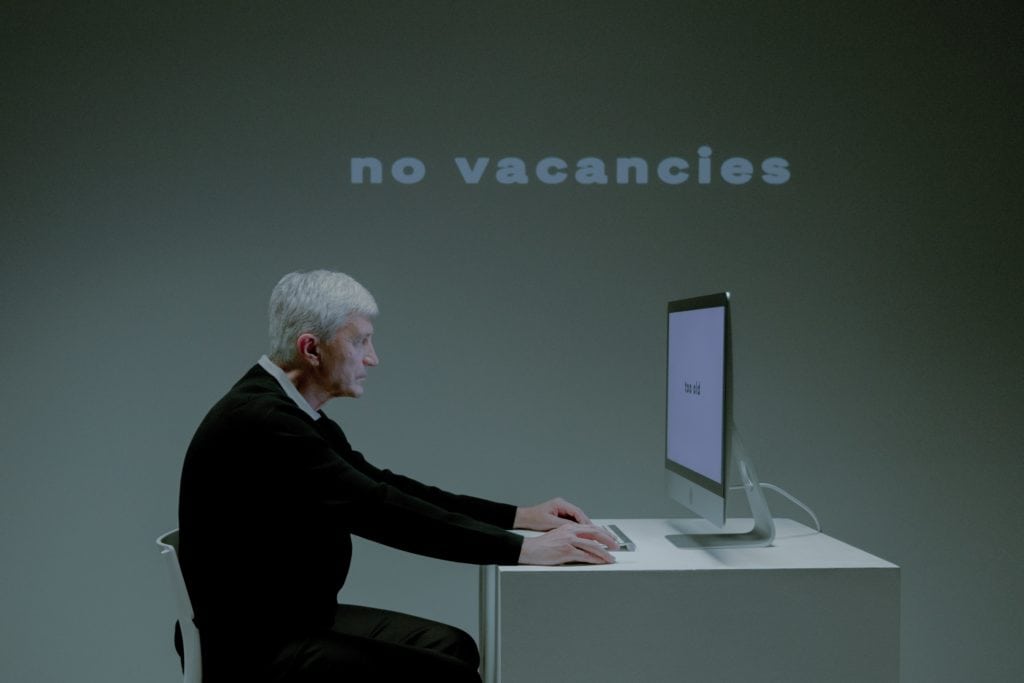Bigger Brains is pulling the curtain back and exposing 5 ethical issues you could face in the workplace and how to avoid them.
Discrimination
Discrimination is defined as “the unjust or prejudicial treatment of different categories of people or things, especially on the grounds of race, age, or sex.” Workplace surveys reveal that as many as 70% of employees have experienced some discriminatory issue or abusive behavior in the workplace.
One type of unethical, discriminatory behavior practiced by many businesses is not often in the news – ignoring the Equal Pay Act. This Act states that men and women in the same workplace should receive equal pay for equal work. This Act is not subject to job titles, only job content.
The reality of this situation is that the lack of equal pay goes far beyond gender. Race, age, and disabilities are common factors that play into a lack of equal pay. A study by SHRM shows that from 2017 to 2019, the average Black man eThe reality of this situation is that the lack of equal pay goes far beyond gender. Race, age, and disabilities are common factors that play into a lack of equal pay. A study by SHRM shows that from 2017 to 2019, the average Black man earned 87 cents for every dollar a Caucasian man earned. Additionally, Hispanic men only made 91 cents to every Caucasian man’s dollar. Lastly, this study found that Black women working full-time, year-round, were only paid 63 cents for every Caucasian man’s dollar. On the other side of this inequality, this study found that Asian men earned $1.15 for every dollar a Caucasian man earned.
So, in a world where equal pay for equal work is not a reality, how can you avoid it? One option is to suggest your business perform a Pay Equity Audit (PEA). Pay Equity Audits can help a company lay out all the information about employees and identify outliers. Another option is to address this in the interview stage. Forbes offers excellent tips for fighting pay inequality in interviews while providing legal advice on questions employers cannot ask. The last option to fight for equal pay would be to report a company violating the Equal Pay Act.

Harassment
Workplace harassment is something that can affect anyone. While some people assume harassment is something that only women face, according to a survey done by the American Sociological Association, 37% of men reported experiencing sexual harassment. Sometimes people assume that sexual harassment is the only kind of harassment people can deal with in a business, which is not valid. Harassment can be defined as “aggressive pressure or intimidation.” According to the Equal Employment Opportunity Commission (EEOC), misconduct can include offensive jokes, slurs, epithets or name-calling, physical assaults or threats, intimidation, ridicule or mockery, insults or put-downs, offensive objects or pictures, and interference with work performance.
With that definition in mind, harassment can be seen in many areas of a business. Imagine your manager calls you into the office to discuss a recently completed project. The project did not meet your manager’s expectations, and because of that, they have turned to verbally attacking you for not being “competent” enough to do the project well. This kind of belittling is a form of psychological harassment, and these attacks can be targeted at a professional or personal level.
The most important thing to do when experiencing harassment is to report it immediately. Staying quiet will not make the harassment stop. Instead, go directly to HR and file a report against the perpetrator. A perpetrator may try to discourage you from reporting their behavior by downplaying their actions or presenting false consequences if you do. Do not listen to them. Report the incident immediately and keep detailed reports if the perpetrator’s behavior continues. If you feel like your employer does not adequately respond to the claim, file a claim with the EEOC.
Unrealistic Goals
Unrealistic goals are not necessarily ethical issues, but they can be a gateway to them. Having unrealistic goals puts an enormous amount of pressure on the employee. When there is a considerable time constraint or elevated expectations, having added pressure from leaders can put employees in a sticky situation. Most people don’t think they would ever act on poor ethics in the workplace, but when you oversee a project that could make or break the company, that may change your point of view.
For employees that are in these situations, they may be more willing to cut corners to make sure upper management stays happy. What these cut corners look like depends on your business industry. Regardless of the specifics, employees willing to cut corners when the stakes are high might be more inclined to cut them again when the pressure is not as high. By the time these actions start to become the norm, the consequences will be catching up.
Handling unrealistic goals can be difficult. In most cases, if you’re in this position, you have a leader putting company profits over their employees’ mental and physical health. Talking with HR and getting advice on what should be done is a good starting place. Sometimes having an honest conversation with the person in charge of these goals is enough to help them realize that they need to ease up. On the other hand, sometimes people are so focused on profits that they don’t care about the ethical dilemmas that could follow. In this case, start looking for a new job if you can. Eventually, the consequences of people’s actions will find them, and it’s better to be with a company you trust rather than one that doesn’t value their employees.

Bad Accounting Practices
One of the most widely recognized forms of “bad ethics” in the workplace is manipulating accounting books. Different people in a company can be involved. Sometimes it is people spending company money in unauthorized ways or management accepting bribes.
Sometimes employees may alter records to set money to the side for themselves. Yes, embezzlement happens in companies of all sizes. Ensuring that businesses keep consistent and unbiased checks on all financial reports is the most efficient way to ensure this doesn’t happen. Keeping copies of all your material dealing with expenses, finances, budgets, and money on the job will help make sure you stay out of the fray if it does happen on another level of the business!
Technology and Privacy Practices
In a world where technology can create an entire virtual world, it is not surprising that employers can also use that technology to monitor employees at work. (If you didn’t know that was a thing companies do, surprise!) Employers can monitor employee activity on computers, company-provided devices, and more, depending on where you work. While most of these abilities were created to ensure productivity, they can come close to privacy violations.
Computer monitoring takes many forms. employers may track content, keystrokes, and time spent at the keyboard. Additionally, they may monitor emails, use technology tools to monitor emails automatically, or may go as far as assigning an individual to read them manually.
While it is not illegal or unethical for a company to review computer activity, when they don’t disclose this information to employees, a line is being crossed. One of the most effective ways for a business to earn employees’ respect is to be upfront and honest with them from the beginning. Monitoring computer activity is not unethical, but when you try to hide what you’re doing and neglect to tell people about it, people start to assume it’s because you don’t trust employees to follow policy and you are out to catch them at something. If you aren’t sure of the policy, ask. Overall, it is good practice to keep personal information out of the workplace computer!



